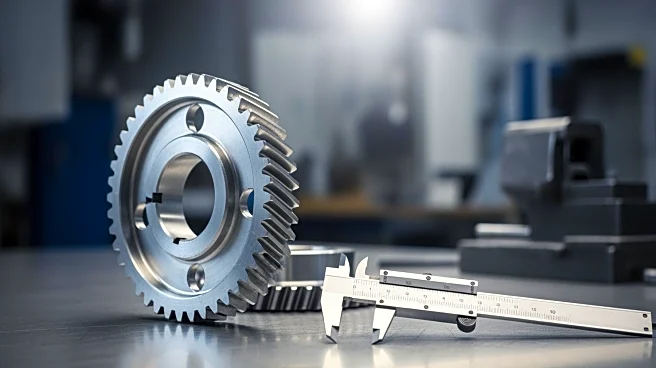What's Happening?
China has announced it may allow exemptions for the export of Nexperia semiconductors, a move that has positively impacted European car manufacturers. This development follows a period of tension after
the Dutch government took control of Nexperia, which is owned by the Chinese company Wingtech, leading to a halt in semiconductor exports. The potential easing of restrictions has led to a rise in the stock prices of major European automakers such as Renault, Mercedes-Benz, and Stellantis, as well as auto parts suppliers like Valeo and Aumovio. The semiconductor shortage had been a significant concern for the automotive industry, which relies heavily on these components for vehicle production.
Why It's Important?
The semiconductor shortage has been a critical issue for the global automotive industry, affecting production and sales. The potential exemptions for Nexperia chip exports could alleviate some of the supply chain constraints faced by automakers, allowing them to ramp up production and meet consumer demand. This development is particularly significant for European car manufacturers, who have been struggling with supply issues. The resolution of this standoff could stabilize the market and provide a much-needed boost to the automotive sector, which has been under pressure due to the shortage.
What's Next?
If China proceeds with the exemptions, it could lead to a more stable supply of semiconductors for the automotive industry, potentially reducing production delays and increasing vehicle availability. This move might also encourage other countries to negotiate similar agreements to ensure a steady supply of critical components. The automotive industry will be closely monitoring the situation to assess the impact on production schedules and market dynamics.









